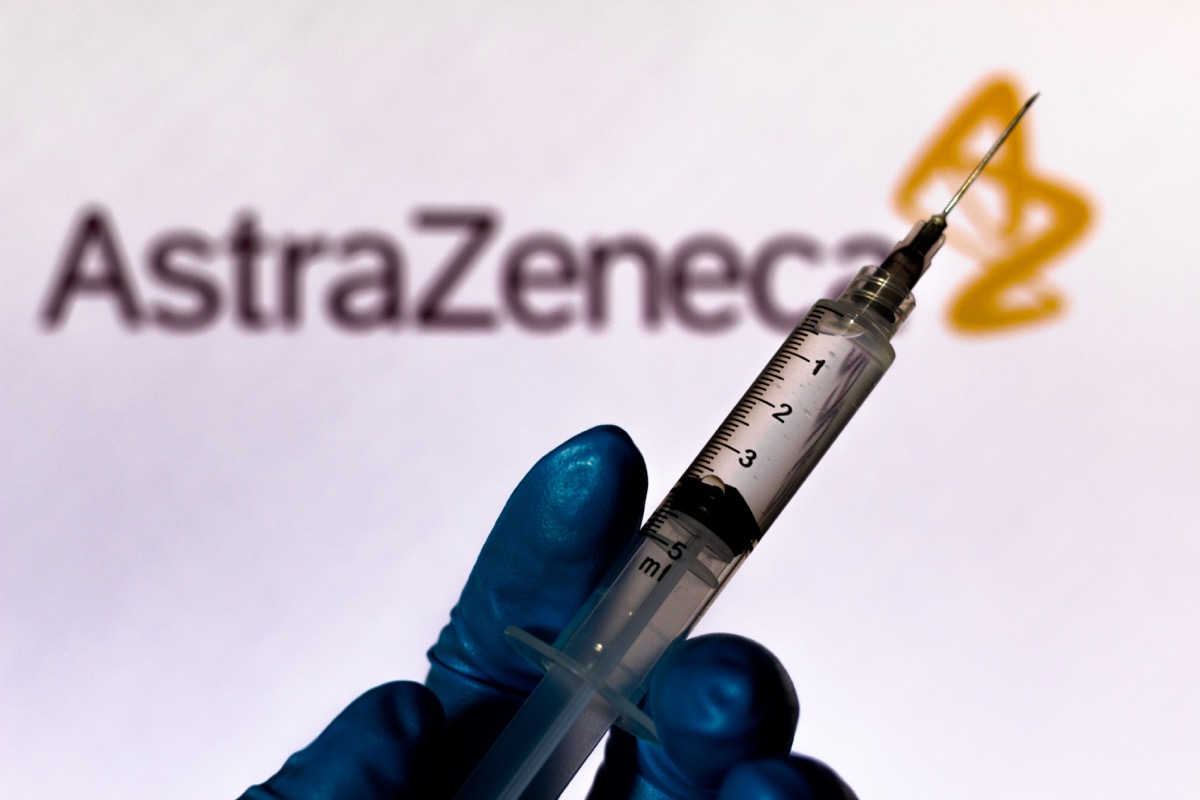On March 29, Canada’s National Advisory Committee on Immunization announced that it had decided to temporarily stop administering the AstraZeneca vaccine to those under 55 after rare cases of blood clots—medically known as vaccine-induced prothrombotic immune thrombocytopenia (VIPIT)—were reported in some European countries. Most of the patients who suffered the life-threatening reaction to the AstraZeneca vaccine were women under the age of 55.ae0fcc31ae342fd3a1346ebb1f342fcb “Following population-based analyses of VIPIT assessing risk of COVID-19 disease by age, and considering that alternate products are available (i.e., mRNA vaccines), from what is known at this time, there is substantial uncertainty about the benefit of providing AstraZeneca COVID-19 vaccine to adults under 55 years of age given that the potential risks associated with VIPIT, particularly at the lower estimated rates,” committee officials said in a statement. And for more vaccine responses to look out for, If 1 of These 3 Body Parts Starts Swelling Up After Your Vaccine, Call a Doctor. Canadian officials said their decision came after new data from Europe showed the risk of the reaction to be 1 in 100,000, which is much higher than the 1 in 1,000,000 it was believed to be before, The Guardian reports. The data also shows the mortality rate of those affected has been as high as 40 percent. According to Joss Reimer, MD, a member of the Canadian province of Manitoba’s vaccine implementation task force, the rare clotting reaction usually develops four to 20 days after receiving the dose and exhibits similar symptoms to a stroke or heart attack. “While we still believe the benefits for all ages outweigh the risks I’m not comfortable with ‘probably.’ I want to see more data coming out of Europe so I know exactly what this risk-benefit analysis is,” she said. And for more on when you’ll need booster shots, check out Moderna CEO Says This Is How Often You’ll Need A COVID Vaccine. The AstraZeneca vaccine has seen a rockier rollout than most others due to supply issues and questions over its efficacy as a result of inconsistencies in clinical data supplied by the company. But the European Union’s health agency cleared the vaccine on March 19, calling it “safe and effective” and unlikely to increase the risk of blood clots. Still, Canadian health officials defended their decision to hold off on using the vaccine in younger people. “It’s reasonable to pause for a period of time while this [risk] continues to be evaluated,” Supriya Sharma, MD, senior medical adviser at Health Canada, said. “I fully understand this can be confusing. Especially for this vaccine, which has had a lot of confusion surrounding it.” And for more COVID news sent right to your inbox, sign up for our daily newsletter. Canadian health officials also said that the suspension likely wouldn’t delay vaccination efforts overall as AstraZeneca doses make up a smaller percentage of vaccines available for use in the country, CNN reports. However, Canada is still slated to receive 1.5 million doses of the AstraZeneca vaccine from the United States this week, as part of a deal struck by President Joe Biden to share portions of the national stockpile. As of yet, the AstraZeneca vaccine has not been approved for use in the U.S. And for more on how to prepare for your shots, check out Don’t Do This the Night Before Your Vaccine Appointment, Experts Say.



